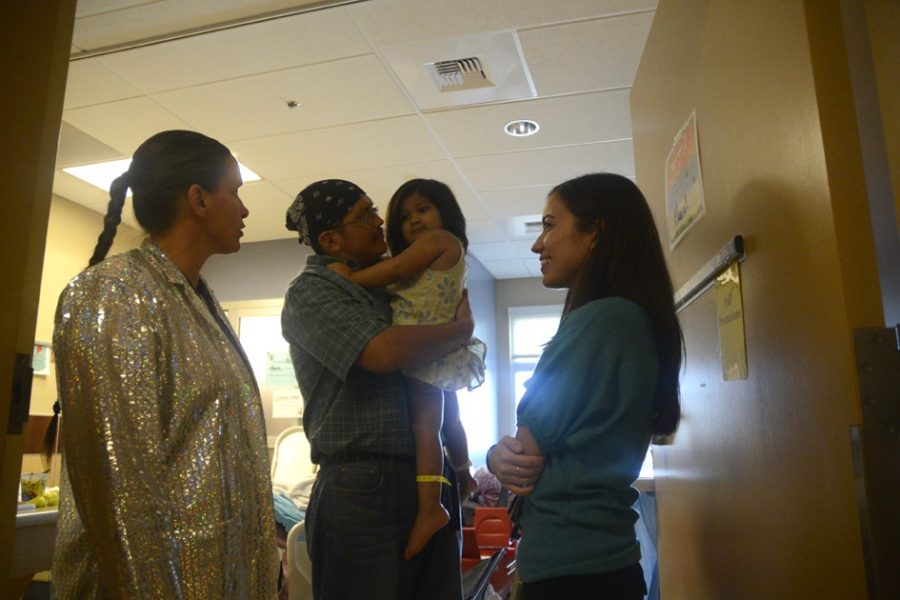UA’s Pediatric Integrative Medicine in Residency program recently expanded its online curriculum to include four other universities in the United States, making it the first national online pediatric integrative medicine program.
Still in its pilot stage, the online curriculum now includes pediatric departments at Stanford University, the University of Chicago, the University of Kansas and Eastern Virginia Medical School Children’s Hospital of the King’s Daughters. Prior to the national launch, the online pilot program was only used at UA’s College of Medicine.
The Pediatric Integrative Medicine in Residency program allows medical school graduates working on their specialization to learn a variety of methods to treat children beyond traditional medicine.
These practices range from nutritional treatment to the Chinese healing tradition of acupuncture. Pediatric residents also learn stress management and physical activity as forms of treatment for their patients.
“There’s a lot of good evidence and data that support the use of these interventions,” said Sean Elliott, director of the Pediatric Residency Program at the UA. “And this way, the residents learn about those so they could talk to their patients and their patients’ parents about them.”
While the integrative online curriculum has been a pilot project at the UA for two years, the UA is gaining recognition and refining its program nationally in hopes to someday create an international teaching tool, according to Hilary McClafferty, director of the Pediatric Integrative Medicine in Residency program.
John Mark, a pediatric pulmonologist at the Lucile Packard Children’s Hospital at Stanford and associate director for recruitment at Stanford’s Pediatric Residency Training Program, said the UA’s online curriculum will also help Stanford attract residents to its program. Because the UA has a highly-competitive pediatric department, the curriculum allows Stanford’s pediatric residents to learn on their own time and complement what they’ve already learned in Stanford’s integrative clinical program, Mark said.
“I thought it would be important to have residents early in their training learn about different therapies that people use besides the ones that are now taught just in medical schools and residencies,” he said.
Mark, also an adjunct professor at the UA, said he made sure Stanford joined the program early in order for Stanford’s residents to benefit from learning about alternative therapy methods.
The program includes 100 hours of online modules that incorporate online lectures, journal reading, writing, dialogue and videos, as well as interactive teaching methods.
“The residents want to do this because they’re realizing in their clinics that their patients or their patients’ parents are asking questions about this,” Elliot said.
Lydia Jenkins, an intern and first-year pediatrics resident, said an initial quiz determines what the residents know before they begin going through the modules. The modules are split up into types of therapy and cover therapies, such as herbal medicine, that are complementary to Western medicine. Jenkins said he has already had parents who ask about complementary medicine when Western medicine doesn’t successfully treat their child’s problem.
“You want to try to approach people from a holistic approach — mind, body, spirit,” Jenkins said, “and not just like a medical, just body [approach].”
Expanding the program to other universities, Jenkins said, helps create more successful health care practitioners with more learning tools.
“It just makes me really proud,” Jenkins said. “It makes me feel like we’re not only a research institute and we’re not only a medical institute, but we’re genuinely interested in taking care of the entire person.”
Follow Stephanie @_scasanova_









